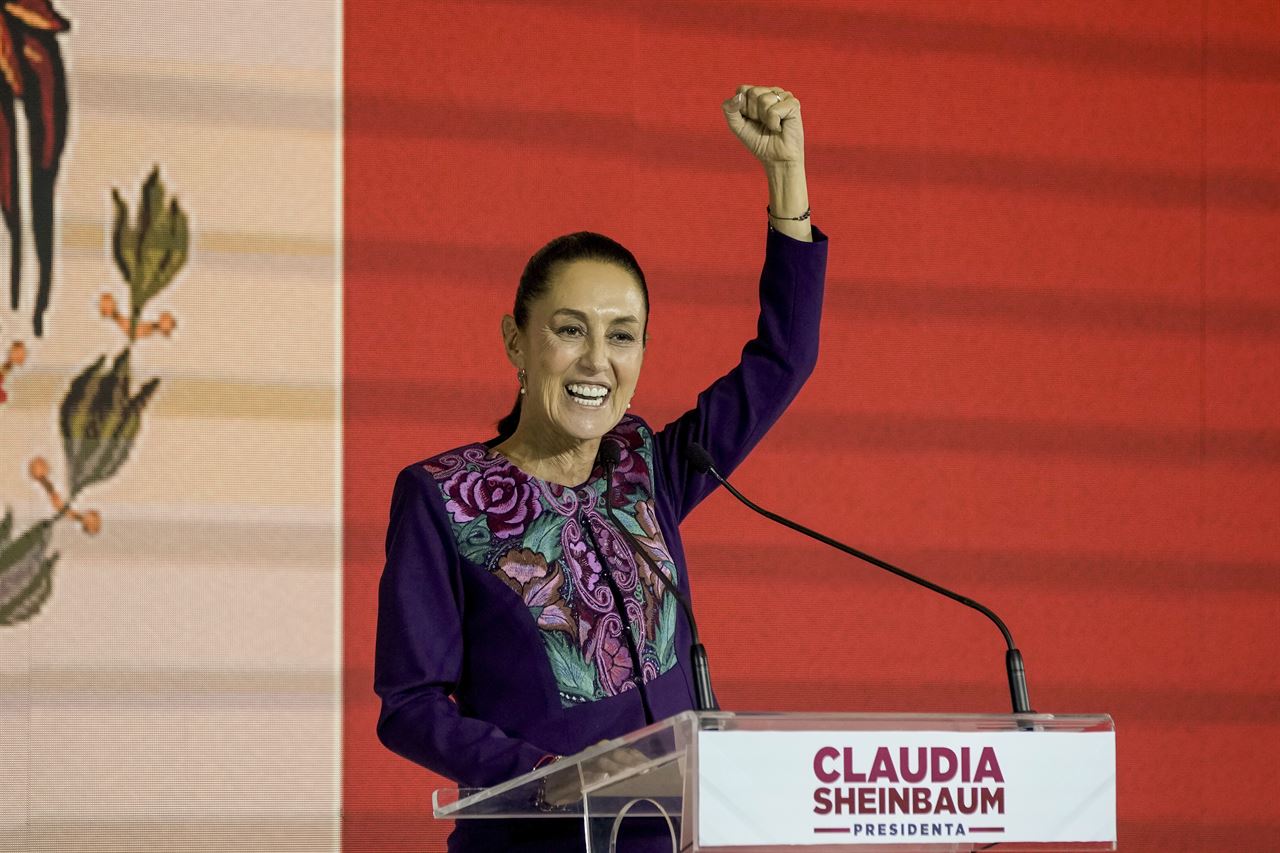
Claudia Sheinbaum is set to become Mexico’s first female president after an official quick count declared her the winner of a historic election that featured two women as the front-runners but was marred by violence.
READ MORE: Mexico's presidential hopefuls wrap up campaigns ahead of Sunday's election
Some 98 million people registered to vote on June 2 in the largest election in the country’s history, based on the number of positions being decided, with candidates focusing on issues of security, migration, and economic reform.
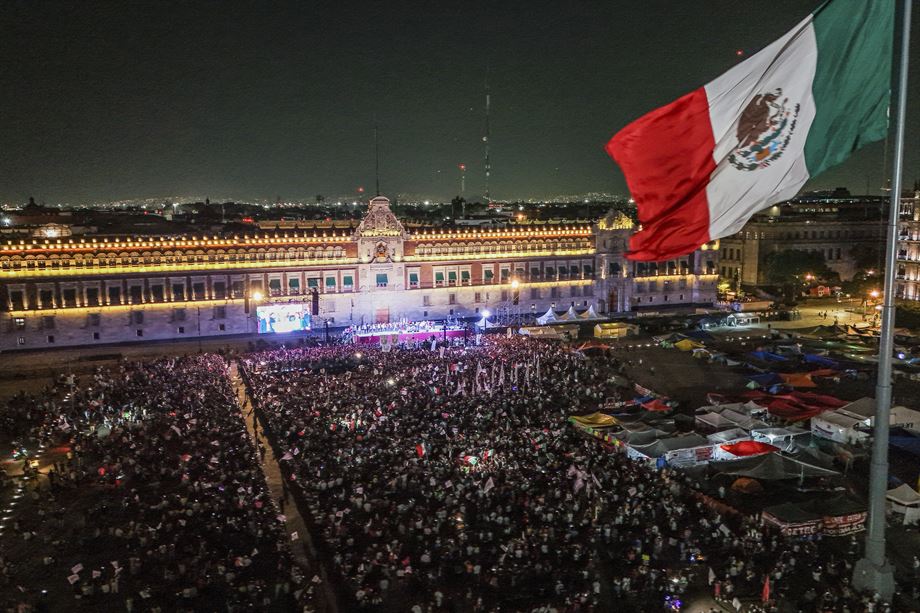
Mexicans voted for a president and more than 20,000 congressional and local offices across the country, including 128 senate seats, 500 deputy seats, the mayor of Mexico City, and governors in eight states.
Sheinbaum will not only become Mexico's first female president but also the first of Jewish heritage. The climate scientist is a former mayor of Mexico City and an ally of incumbent President Andres Manuel Lopez Obrador (commonly known as AMLO)
An official quick count gave Sheinbaum an irreversible lead, Mexico’s National Electoral Institute reported on the night of June 2.
READ MORE: Mexico elects first female Supreme Court president
The INE’s statistical sample gave Sheinbaum between 58.3 percent and 60.7 percent of the vote, well ahead of her closest rival Xochitl Galvez, who was projected to have won 26.6 percent and 28.6 percent.
Sheinbaum, who represents the ruling Morena party, led the race leading into election day, maintaining a double-digit lead in opinion polls over businesswoman Galvez.
Exit polls suggested a historic victory and Mario Delgado, the head of Morena, declared Sheinbaum the presumptive winner late on June 2, ahead of a full count being done over the next few days.
Crowds of Sheinbaum’s supporters gathered to celebrate victory in the “Zocalo”, Mexico City’s main central square.
Galvez had urged her own supporters to wait for the official results, which were expected on June 3.
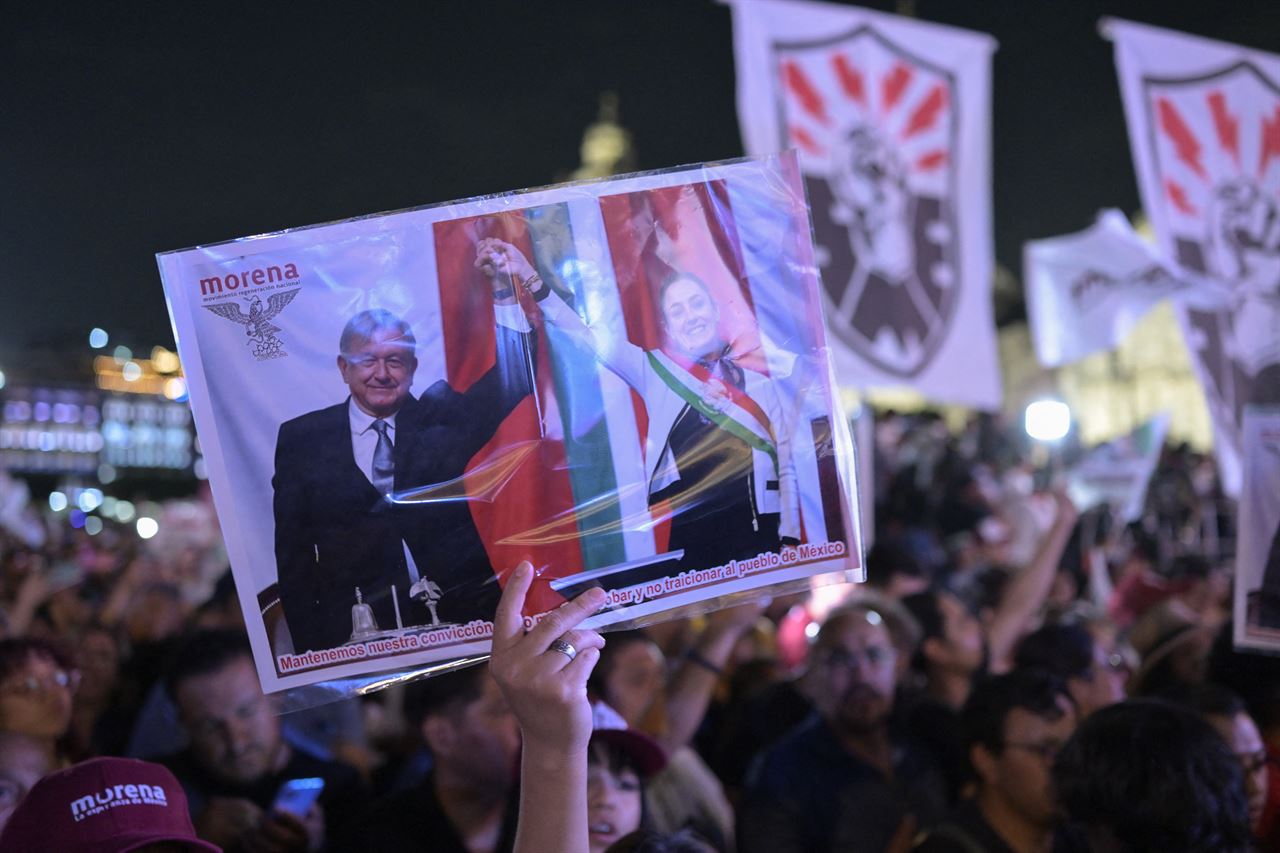
Sheinbaum will not only become Mexico's first female president but also the first of Jewish heritage. The climate scientist is a former mayor of Mexico City and an ally of incumbent President Andres Manuel Lopez Obrador (commonly known as AMLO).
After confirmation, Sheinbaum is scheduled to start her first term on Oct 1, taking over from her mentor AMLO, who remains popular but is constitutionally barred from running for a second term.
READ MORE: Protesters knock down door of Mexico's presidential palace
“This is clear continuity of the model of government put in place by Lopez Obrador,” said Ezequiel Gonzalez Matus, a lawyer and electoral issues expert.
“She has said she will continue with AMLO’s efforts to limit the power of the judiciary and control legislative power though his party,” Matus said.
A question that remains, said Matus, is what style of government Sheinbaum will adopt. He noted that during her campaign she did not outline a strategy to combat criminality in Mexico.
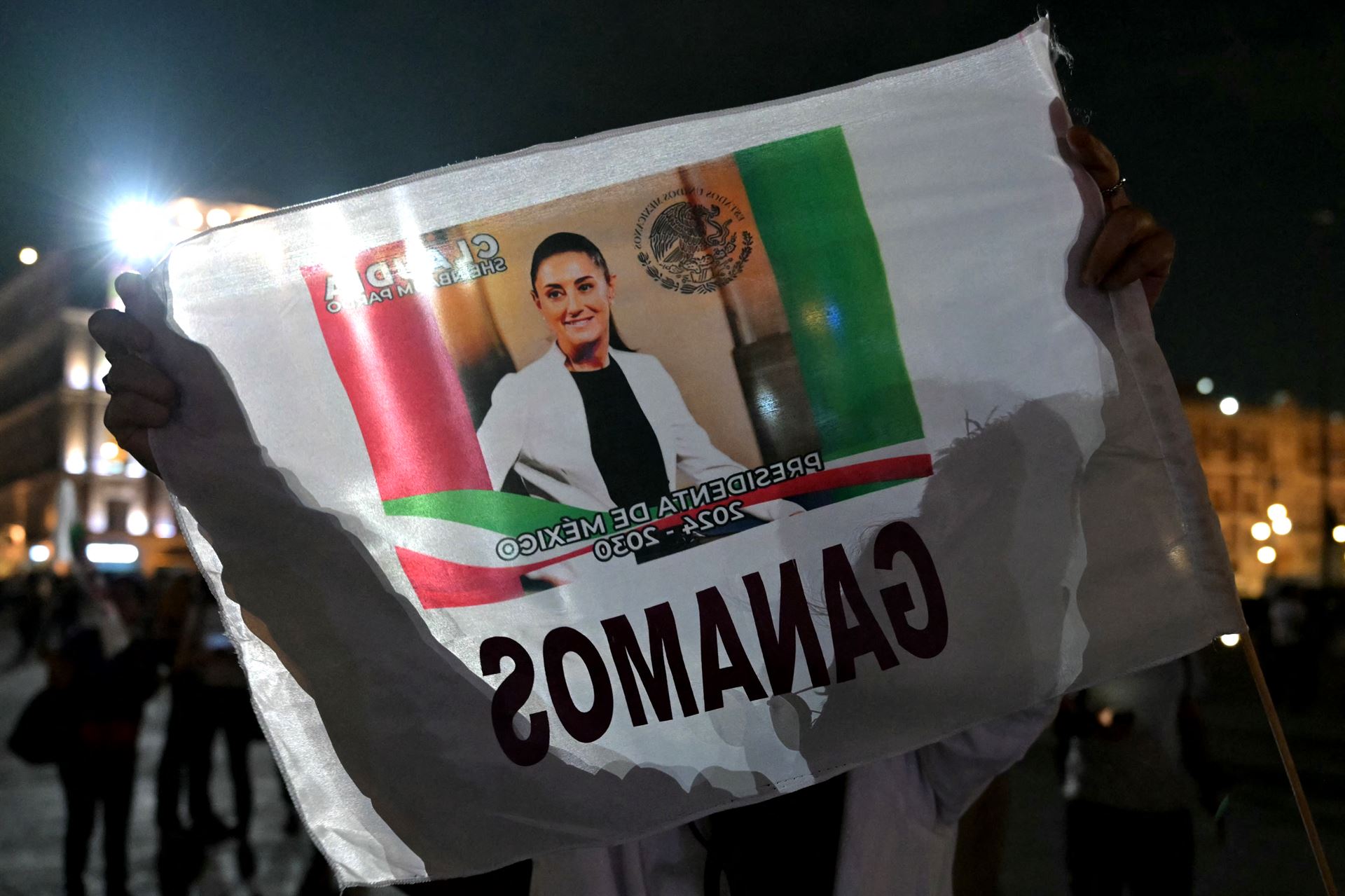
Regardless of what happens next, Sheinbaum’s victory may prove pivotal for the country.
“It is important that my country can have a woman win for the first time because it marks a turning point in history,” said Hector Manuel Diaz, founder of the Association of Business for the Fourth Transformation, a trade group referencing the “fourth transformation” reform promise of AMLO’s 2018 election campaign.
Her win represents “a step beyond patriarchy and machismo often seen in Latin cultures,” said Diaz, who is also a counselor to the national government.
This election campaign sparked discussions about the role of women in Mexican politics, even though Sheinbaum shied away from the topic, choosing instead to focus on her policies and taking the mantle from AMLO.
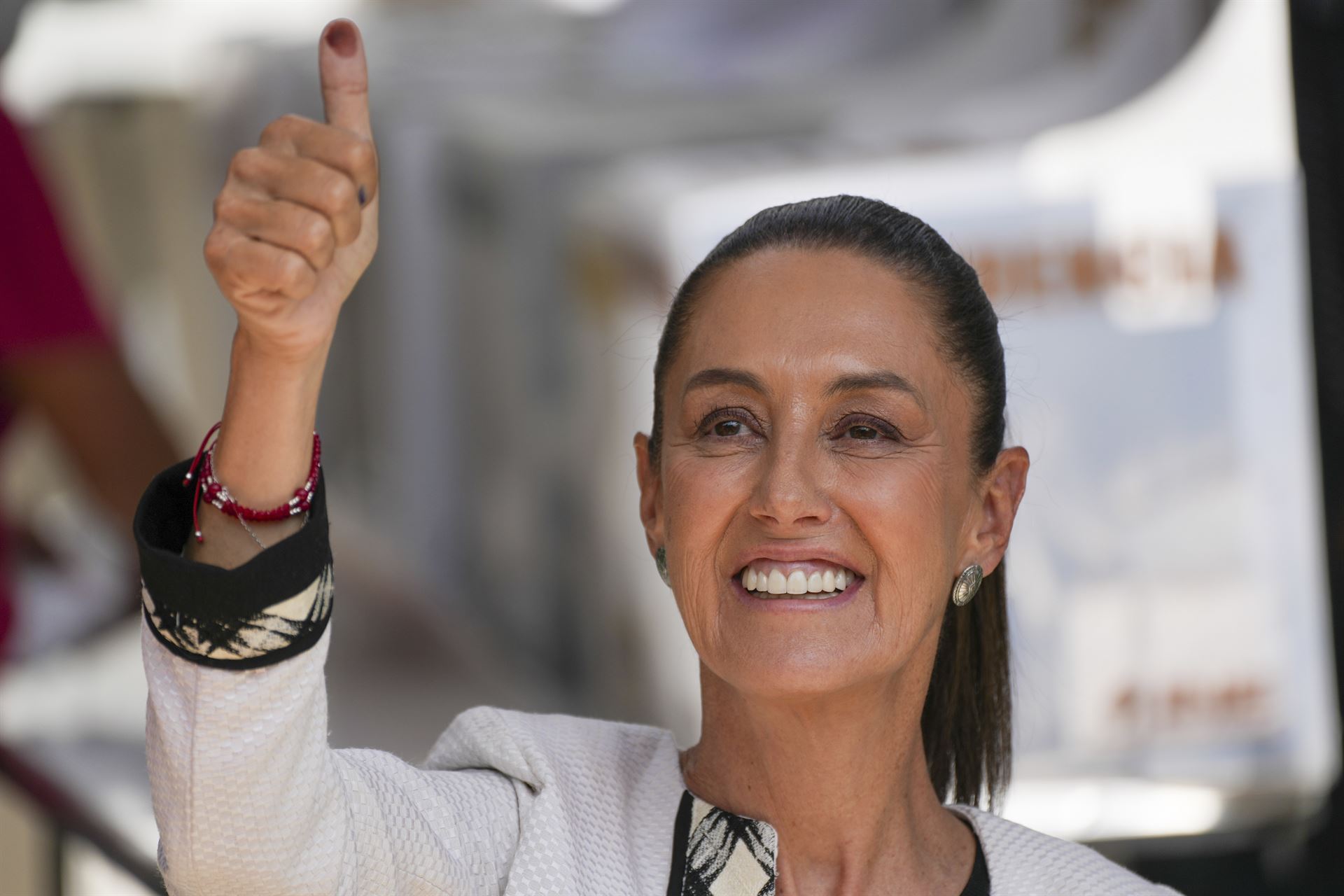
She ran a campaign focused on expanding welfare programs, including pensions for seniors and scholarships for students, providing free fertilizer for small farmers, consolidating the National Guard, reforming the judiciary, and strengthening coordination among law enforcement organizations.
READ MORE: Mexico president urges US to alter foreign policy, respect sovereignty
Sheinbaum is a “well-prepared and capable woman to carry out a government plan she has already defined and announced on several occasions”, said Diaz. “I consider her solid and structured … She has the talent to get things done.”
Sheinbaum's main rival, Galvez, is a former senator and top indigenous affairs official. She was backed by a coalition of three parties and also promised to extend social programs.
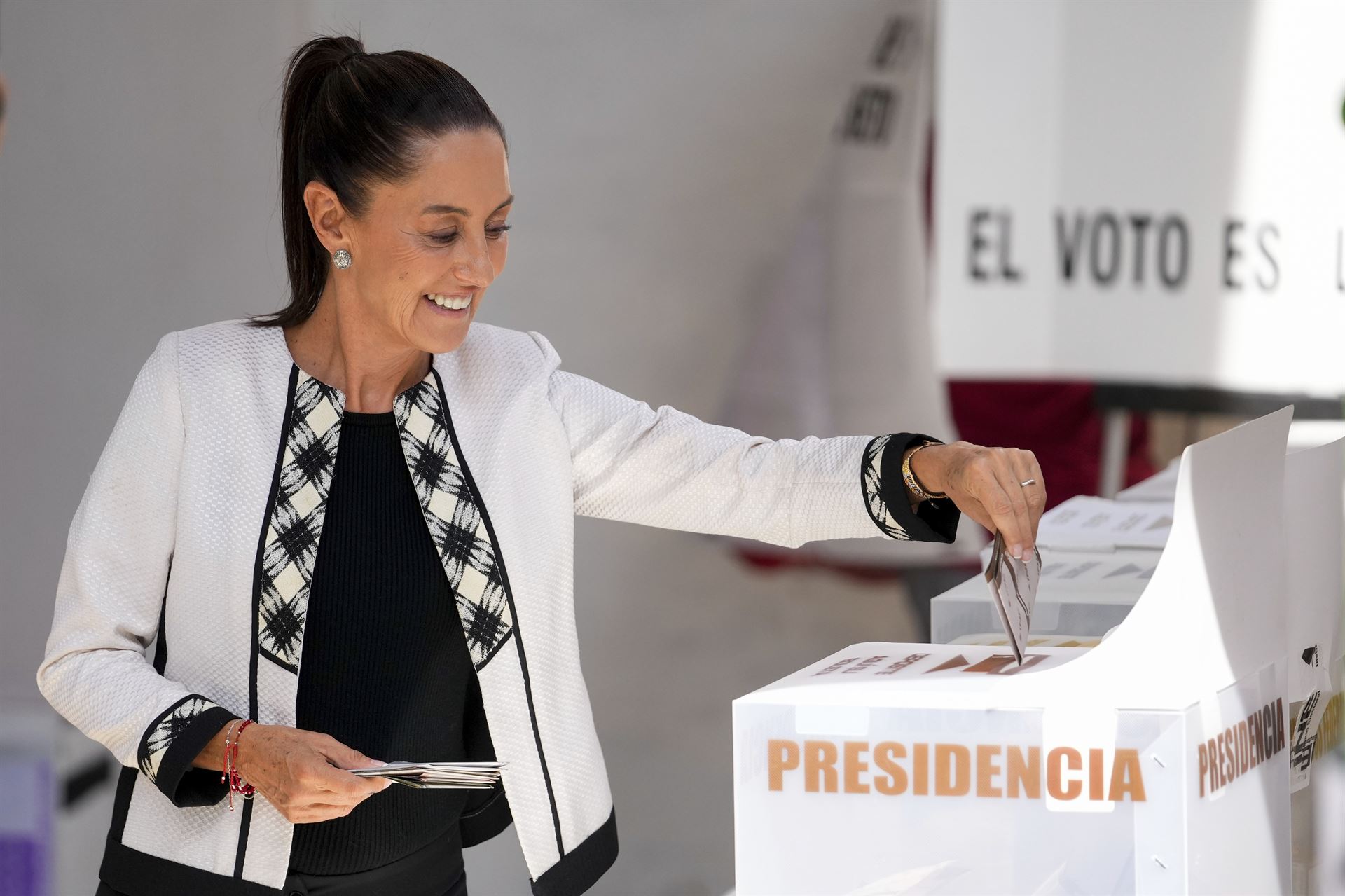
“Her boldness, simplicity, and lack of seriousness are the negative aspects,” Diaz said of Galvez’s campaign. "She is not fit to be the country's president; she would be fine as a senator or seeking some gubernatorial position again but not as president.”
Some 38 candidates were murdered, including one who was shot on June 1 - the night before the election
A third candidate and late entrant in the race, Jorge Alvarez Maynez, made headlines by proposing policies to eliminate the criminalization of some drug possession, end militarization, focus on police training, push for economic reform, create a universal pension system, and invest in renewable energy.
Security issues dominated the conversation during an election campaign that was marred by violence and underscored the ongoing challenges that the country faces battling its high crime rates.
READ MORE: Nine killed in Mexico stage collapse at campaign event
Some 38 candidates were murdered, including one who was shot on June 1 - the night before the election.
The assassinations were because “local positions are critical for controlling the area,” said Ana Esther Cecena, coordinator at the Latin American Geopolitical Observatory of the Institute of Economic Studies, at the National Autonomous University of Mexico.
Assassinations and attacks have also occurred at higher levels, and many appointments are specifically influenced by these organized groups.
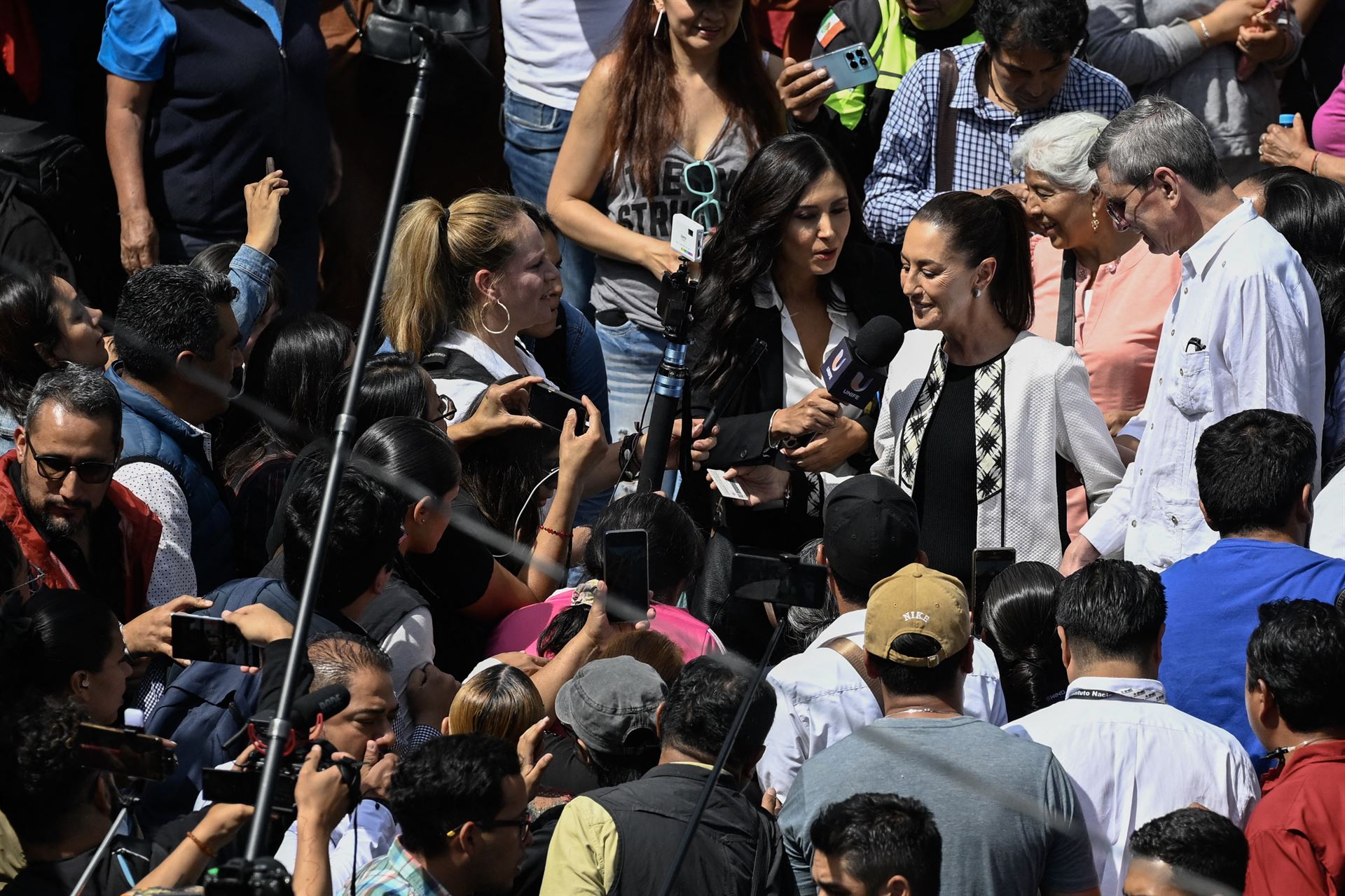
In many cases, there are no assassinations but candidates who initially planned to run withdrew voluntarily, allowing the candidates favored by cartels to advance, Cecena said.
“It is crucial to pay attention to the issue of violence. The period right after the elections, between the election and the assumption of office, is notorious in this country for ‘dirty deals’ being made,” said Cecena.
Election-related violence during on June 2 alone led to the deaths of two people who were killed in incidents at two different polling centres.
A key driver of the violence was efforts by drug cartels to control greater swaths of territory.
Immigration has also been a hot topic, with the country facing significant increases in migrant arrivals and pressure on its southern and northern borders.
The writer is a freelance journalist for China Daily.


